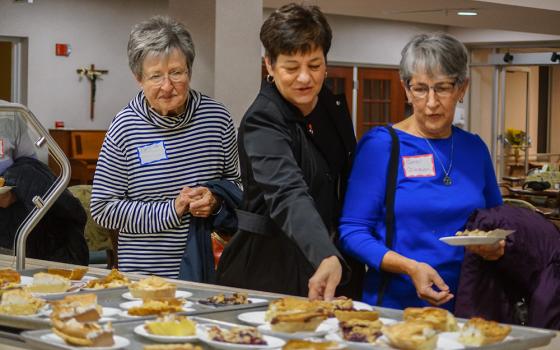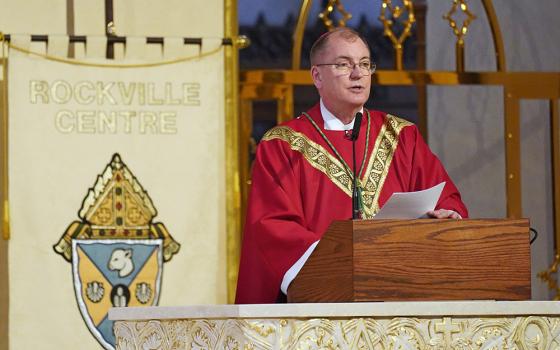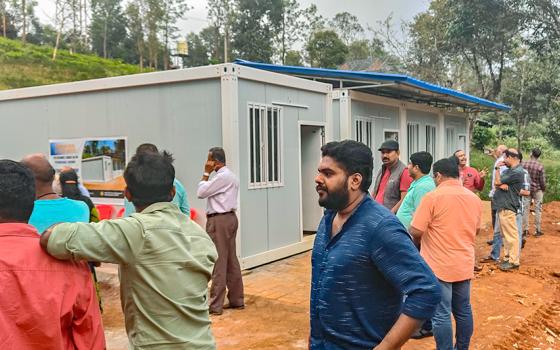
Mwanza, Tanzania
During my morning meditation in this small Tanzanian village, I am overwhelmed by the beauty of God’s creation gracing our neighborhood: majestic volcanic rock formations, tender rice paddies, exotic birds and wild monkeys.
I am equally overwhelmed by the poverty of our neighborhood, including our next-oor neighbor, Babu, a grandfather who is old, short, bald and barefoot. During the past two years for the almost nine months that I have periodically lived here, he seems to have been wearing the same brown, tattered, mud-stained pair of pants. He is the skinniest man I have ever seen, and if I tried, I believe I could actually count every one of his bare-chested ribs.
Eve
ry morning he comes out of his little mud hut and yawns good morning while investigating his well tended garden. Then he brushes his “teeth” (although he is toothless) before spitting onto his up and coming vegetables. This little old man, who looks so vulnerable and fragile, has no idea of the powerful impact he has on me and my meditation and how much I honor him as my teacher. He stirs my conscience to ask: Is Babu my neighbor or is Babu my family?
Pope Benedict XVI is asking this same question in his recent social encyclical, Caritas in Veritate: Are we all neighbors who live alongside one another on this earth or are we a family of sisters and brothers who truly share our God-given resources? This is a profound and excruciatingly uncomfortable question to ponder.
I feel like a hypocrite when I contemplate the disparity between my life of vowed Franciscan poverty and Babu’s life of genuine, authentic, down-to-earth poverty. Every day we both witness the same procession of women, men and children walking down our dusty red road from before sunrise to well after sunset: women carrying huge loads of bananas or sweet potatoes balanced on their heads, with babies wrapped around their backs in colorful African cloth, as they walk to and from market. We both see their little barefoot daughters in tattered clothes walking behind them, trying to balance pots of potatoes on their heads and little sisters or brothers on their backs. We both see men and young boys riding by on their bicycles with enormous loads of sugar cane, live chickens, huge bags of charcoal, and everything else imaginable! And even younger little boys, alone without any adult nearby, prodding herds of skinny goats and cows with long sticks.
They are a walking meditation and provoke me to ponder: What is the future of these little girls and boys following in the footsteps of their mothers and fathers down this road of barely surviving? And what is Babu pondering as he sits on his stool in front of his mud hut watching this same endless procession of poverty? Does he ever wonder if this road will eventually lead to a place where his grandchildren will be one of the 10 percent of the population that graduate from high school? Does he ever wonder when Tanzanian women will be able to stop walking down this long road to fetch water before lifting the huge jugs onto their heads to carry back home? Does he ever question why he has to choose between using costly charcoal to cook porridge or to boil his water to prevent illnesses like typhoid, intestinal worms and cholera? Does he ever wonder why the majority of our neighbors still have to rely on septic tanks, pit toilets, or simply on the outdoors to relieve themselves like he does? Babu and the never-ending procession of women, men and children walking down our dusty red road are living, breathing social justice mantras echoing that haunting question: Are we neighbors or are we family?
Because of a lack of uncontaminated water, soap and toilet paper it is difficult for Babu and many of our neighbors to maintain basic body hygiene, causing disease to be rampant. The windows of his mud hut are just holes with no screens to protect him from mosquitoes and malaria. When I see him bent over hoeing his garden with his bare feet sinking into the thick red mud I worry about him being attacked by one of the spitting cobras that frequent our neighborhood.
I have watched him struggle to plant papaya trees and later watched monkeys scurry around stealing the fresh fruit of his labor. One morning I was startled to see a huge baboon roaming around his backyard but he did not seem to be the least bit troubled. No, Babu just continued working tirelessly, sweating profusely, surviving barely, and unknowingly teaching me conscience-provoking lessons.
Thirty years ago, I spent three consecutive years here. Sadly I have not noticed any significant improvement, with 80 percent of the population living below the poverty level. Will it take another 30 years before we, as a world community, acknowledge and respond to Babu and all our African sisters and brothers as truly our family?
If we do not acknowledge our African sisters’ and brothers’ God-given right to share in our abundant resources, who will? If we do not respond to our African sisters’ and brothers’ human right to share in our abundant resources now, then when?
Franciscan Sr. Maureen Sinnott is a clinical psychologist and peace activist in San Francisco. She periodically ministers in Tanzania. She can be reached at reensinnott@gmail.com.



